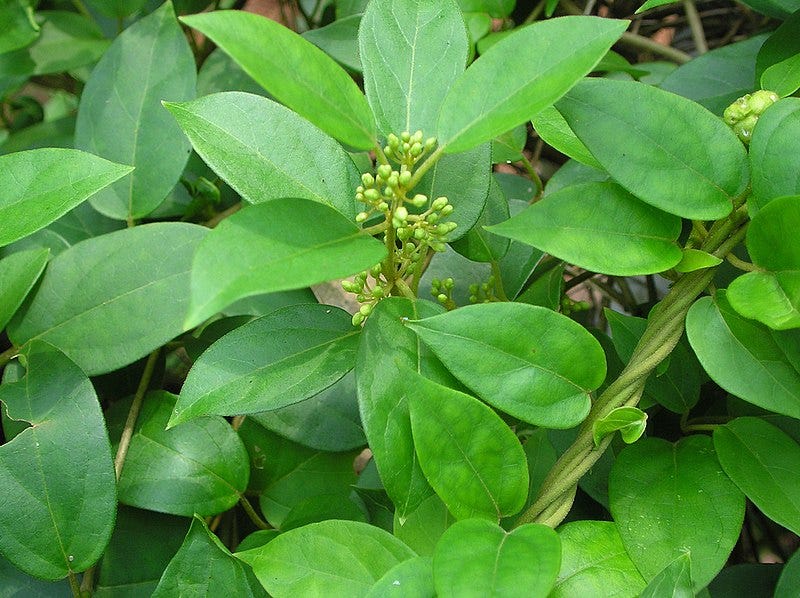Gurmar (Gymnema sylvestre) is one hell of a powerful herb that's been kicking diabetes' ass for centuries in traditional Ayurvedic medicine. The name "Gurmar" literally translates to "sugar destroyer" in Hindi, which is a badass way of describing how this plant obliterates your ability to taste sweetness when you chew on its leaves. Originating from the tropical forests of India and parts of Asia, this woody climbing shrub has leaves that contain gymnemic acids that are the real damn heroes in this story. This plant doesn't fuck around when it comes to blood sugar management and has been gaining serious attention from researchers who are finally catching up to what traditional healers have known forever. The Western world is only now getting its shit together about recognizing Gurmar as a legitimate player in the battle against metabolic disorders and obesity.
Description:
Gurmar is a woody climbing plant with oval-shaped leaves that look pretty ordinary until you realize they're packing some serious medicinal punch. The leaves have this velvety texture that doesn't hint at the powerful compounds lurking within their unassuming green appearance. When dried and powdered, Gurmar transforms into a greenish-brown dust that smells earthy as fuck and tastes bitter enough to make your face scrunch up. The real magic happens with the gymnemic acids that interact with your taste buds in a way that temporarily blocks sweetness receptors, making that donut taste like cardboard for up to an hour. This peculiar property earned it the name "sugar destroyer" and made it a valuable tool for helping people kick their addiction to sweet crap.
Cultivation Section
Gurmar is a stubborn bitch to grow outside its native tropical climate, requiring high humidity and temperatures between 68-95°F to really thrive. The plant grows best in partial shade with well-draining soil that's rich in organic matter and slightly acidic, so don't fuck up the pH balance. Seeds can be a pain in the ass to germinate, taking anywhere from two weeks to a whole damn month, which is why most propagation is done through stem cuttings. Once established, these plants can grow up to 10 meters in length, climbing whatever the hell they can grab onto with their twining stems. Harvesting should be done before flowering for maximum medicinal potency, and you'll need to wait at least 2-3 years before your plant is mature enough to start harvesting regularly.
Medicinal Uses:
Blood Sugar Management
Gurmar contains gymnemic acids that help block sugar absorption in the intestines and may boost insulin production in the pancreas. Research shows it can reduce blood glucose levels in both type 1 and type 2 diabetic patients when used as a supplement alongside conventional treatments.
Weight Loss Support
The herb can help reduce cravings for sweets by temporarily blocking sweet taste receptors on your tongue. It may also interfere with the body's absorption of sugar, potentially reducing the number of calories your body takes in from carbohydrates.
Cholesterol Reduction
Studies indicate that Gurmar can help reduce LDL (bad) cholesterol and triglycerides in the bloodstream. This cholesterol-lowering effect works synergistically with its blood sugar benefits to support overall metabolic health.
Anti-inflammatory Properties
Gurmar contains compounds that have been shown to reduce inflammation in various tissues throughout the body. These anti-inflammatory effects may contribute to its overall benefits for metabolic health and disease prevention.
Digestive Support
The herb has traditionally been used to support healthy digestion and treat various gastrointestinal issues. It can help soothe the digestive tract and may improve nutrient absorption while reducing uncomfortable digestive symptoms.
How to Use:
Keep reading with a 7-day free trial
Subscribe to Wendy The Druid to keep reading this post and get 7 days of free access to the full post archives.



